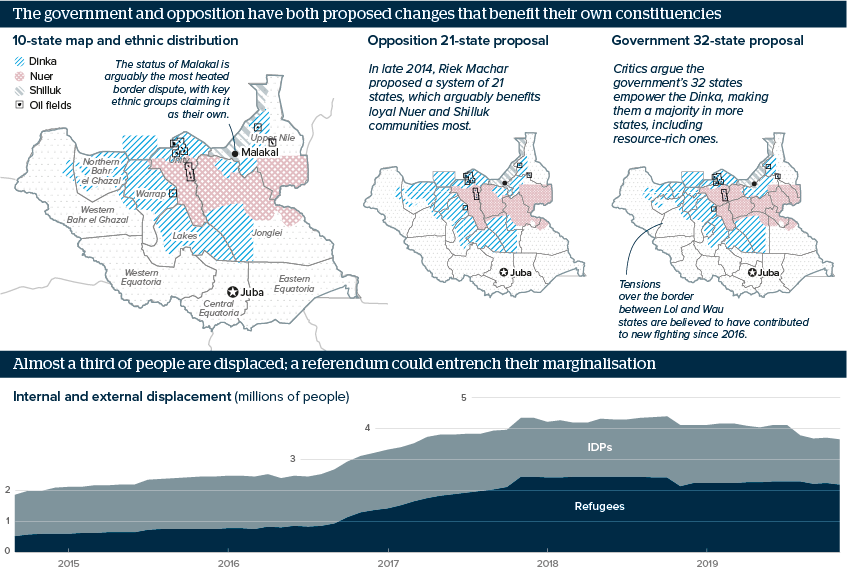South Sudan peace rests on resolving states impasse
Sub-national governance structures are crucial to the way patronage, power and control are exercised within the country
Source: UNOCHA; UNHCR; IOM; Oxford Analytica
Outlook
Opposition leader Riek Machar is currently in Juba for talks with President Salva Kiir to try to resolve disputes over the number and boundaries of South Sudan’s states. South Sudan originally had ten states but during the civil war the government subdivided the country into 32 states, a move the opposition has rejected as an attempt at ethnic re-engineering.
A joint commission mandated under the 2018 peace deal to resolve these differences ended in deadlock and the government now suggests the issue should be put to a referendum.
The issue is fundamental to all sides, as state governance structures are a key vector for the distribution of resources and political positions and thus a critical element of leaders’ ability to exercise power and control.
Impacts
- Machar faces pressure to secure a compromise, as frustrated core constituencies might otherwise reject his leadership.
- Kiir has much more power and scope to compromise but will face less pressure to do so.
- A free and fair referendum would be impossible to organise under current conditions and difficult to design even under good conditions.
- Any option other than a reversion to ten states will breed complex boundary disputes, which could be a source of future conflict.
See also
- Flawed choices may birth new South Sudan government - Feb 19, 2020
- South Sudan arbitration offer poses opposition dilemma - Jan 17, 2020
- South Sudan state governance poses threat to stability - Oct 15, 2019
- More graphic analysis
